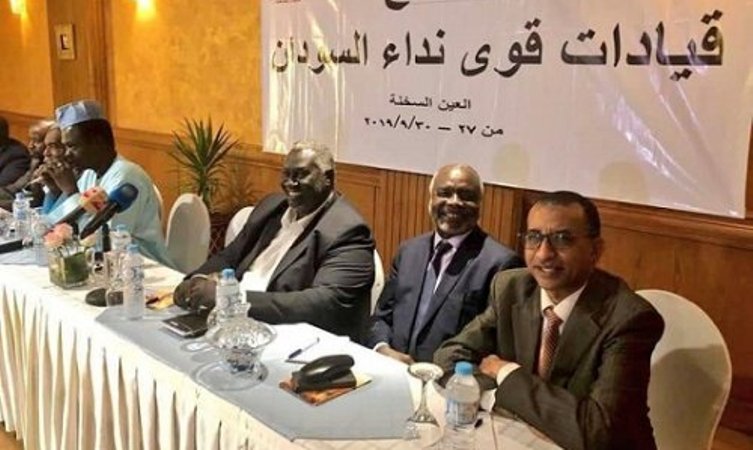Sudan Call accepts al-Mahdi’s resignation

September 30, 2019 (KHARTOUM) – The leadership of the Sudan Call alliance on Monday accepted the resignation of its chairman, Sadiq al-Mahdi, who submitted his resignation letter earlier this month.
On 18 September, Mahdi announced his resignation as chairman of the Sudan Call pointing to the need to restructure the large alliance which includes armed groups and political forces is now seen as part of the ruling Forces for Freedom and Change (FFC) while the armed groups prepare to engage in peace talks.
In his resignation letter, al-Mahdi called on the Sudan Call’s components to reviews the structure of the coalition and its relationship with other allied groups in a way to achieve the goals of the Sudanese revolution.
In a statement issued at the end of its three-day meeting in Cairo from 27 to 30 September, the alliance members stressed the need to maintain and develop the largest alliance that unite forces of the urban and marginalized areas and to select new leadership.
The Sudan Sudan alliance was formed in December 2014 to negotiate a comprehensive peace and democratic transition with the former regime of Omer al-Bashir.
The meeting also agreed to coordinate efforts to set up a structure for the Forces for Freedom and Change in a manner that preserves its unity to perform the tasks of the transitional period, satisfy all its parties and end the gap between them and the Sudanese Revolutionary Front.
To that end, the alliance said they would hold consultations with the other parties of the ruling coalition.
The alliance further called for a genuine and productive partnership between all the parties to the transitional government, including the regular forces, on the basis of slogans of the revolution freedom, peace and justice.
The armed groups and al-Mahdi have publicly criticized their allies in the FFC as some of them objected to some demands made by the armed groups.
Also, nowadays, they propose to establish a leadership council for the FFC but the Sudanese communists and some others refuse this proposition saying they prefer the coordination between the independent partners because the unified leadership will lead to imposing some choices on them.
The large alliance includes the National Umma Party, Sudanese Congress Party and the rebel umbrella Sudanese Revolutionary Front most notably Justice and Equality Movement, Sudan People’s Liberation Movement-North Malik Agar, Sudan Liberation Movement-Minni Minnawi (SLM-MM) and the SLM Transitional Council.
(ST)
